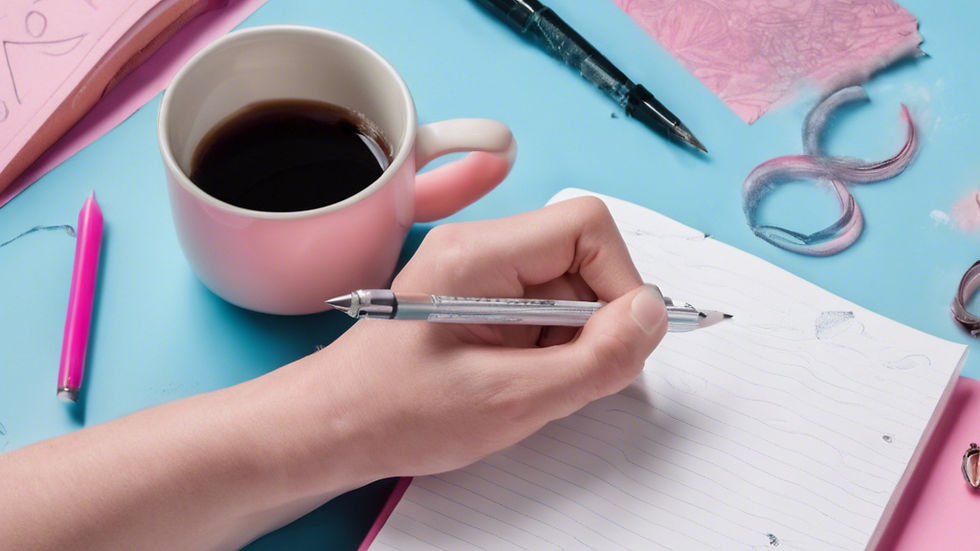Take a Nap and Don’t Feel Guilty About It
- Melissa Jarvinen
- Jan 28, 2025
- 3 min read
Updated: Dec 29, 2025

In today’s always-on world, rest is often overlooked—and naps are sometimes even seen as a sign of laziness. But the truth is, naps are not just for children. They’re an essential tool for recharging your body and mind. If you’re feeling drained, unfocused, or just plain tired, a quick nap might be the self-care solution you need.
In this blog, we’ll explore why naps are beneficial, how to incorporate them into your routine, and tips for making the most of your downtime.
Why Napping Is Good for You
1. Boosts Energy and Alertness: A short nap can refresh your mind and help you power through the rest of your day. Research shows that naps can improve cognitive performance and reaction times, making you more productive.
2. Improves Mood: Feeling cranky or stressed? A nap can help reset your emotions and improve your mood, giving you a more positive outlook.
3. Enhances Creativity: Naps are known to activate the brain’s right hemisphere, which is associated with creativity and problem-solving. A well-timed nap can help you approach challenges with fresh ideas.
4. Supports Overall Health: Adequate rest is essential for your body to repair and recharge. Naps can lower stress hormones and even reduce the risk of heart disease.
How to Take a Perfect Nap
Not all naps are created equal! Here’s how to make your nap count:
1. Keep It Short
Aim for 20 minutes to feel refreshed without entering deep sleep, which can leave you groggy.
If you’re extremely tired, a longer nap of 60-90 minutes can help, as it allows your body to complete a full sleep cycle.
2. Nap at the Right Time
Mid-afternoon (between 1 PM and 3 PM) is ideal for napping, as this is when most people experience a natural dip in energy.
Avoid napping too close to bedtime to ensure it doesn’t interfere with your nighttime sleep.
3. Create a Relaxing Environment
Find a quiet, dark, and comfortable space to rest.
Use a sleep mask or earplugs if needed.
4. Set an Alarm
To avoid oversleeping, set an alarm for the desired nap duration.
Tips to Overcome Nap Guilt
Feeling guilty about taking a nap? Here’s why you shouldn’t:
Rest is Productive: Taking care of yourself enables you to show up as your best self for work, family, and other commitments.
Listen to Your Body: If you’re feeling tired, it’s your body’s way of signaling that it needs rest. Ignoring it can lead to burnout.
Reframe Napping as Self-Care: Think of naps as a tool for maintaining your health and well-being, not as a luxury or indulgence.
Alternatives to Napping
If a nap isn’t possible, try these quick energy-boosting alternatives:
Take a 5-minute stretch break: Move your body to increase circulation.
Breathe deeply: Try a few rounds of deep breathing to calm your mind and boost alertness.
Step outside: A few minutes of fresh air and sunlight can work wonders for your energy levels.
The Benefits of a Rested Body and Mind
When you give yourself permission to rest, you:
Feel more focused and productive.
Handle stress more effectively.
Enjoy better physical and emotional health.
Have the energy to pursue the things that truly matter to you.
Final Thoughts: Give Yourself the Gift of Rest
Rest is not a luxury—it’s a necessity. Taking a guilt-free nap is one of the simplest ways to recharge and take care of your well-being. So, the next time you feel your energy dipping, close your eyes, take a deep breath, and allow yourself to rest. Your body and mind will thank you.
Ready to create more restful habits in your life? DM me to learn how we can work together to improve your energy and overall well-being!






Comments